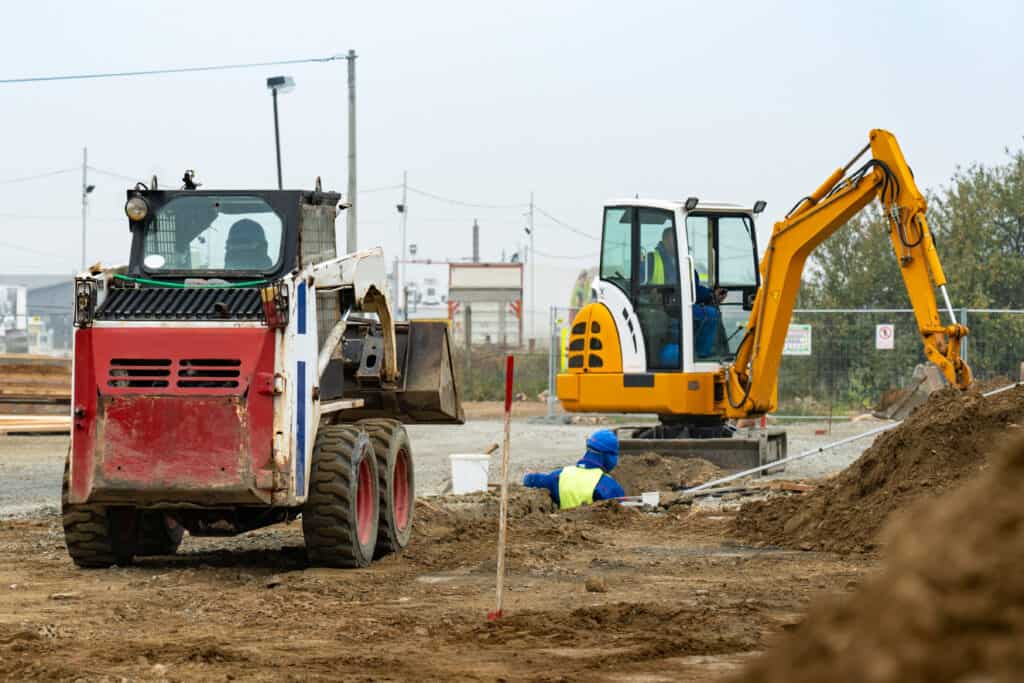
For many, living in Canada is the dream.
The scenery is beautiful.
The people are friendly.
There are pros and cons to everything.
Let’s take a look at the advantages and disadvantages of living in Canada.
25 Pros Of Living In Canada

1. Canada Has An Exceptionally High Quality Of Life

According to US News, Canada has been named the best country to live in—six years in a row.
Residents of Canada are extremely happy to be there, and it shows.
Canadian citizens have access to the things they need.
They don’t feel overworked.
They feel as though their healthcare is taken care of and that their education and job prospects are good.
While things aren’t perfect, they’re good, and importantly, they’re improving.
Altogether, this makes Canada one of the best countries in which to live, with a myriad of factors taken into consideration.
2. The Economy Is Growing And There Are Plenty Of Jobs

The Canadian economy has been growing strong for some time.
Before the pandemic, unemployment rates were very low.
As the pandemic is getting under control, these employment rates have been going up.
In 2020, 9.5 percent of the labor force in Canada was unemployed.
In the US, unemployment topped out at 14 percent.
That was with the Canadian government putting a lot of money toward trying to get people to stay at home (and therefore unemployed).
Now that the pandemic is starting to wane, it’s likely that the unemployment rates will start to drop.
3. It’s A Beautiful Country With Great Outdoors

People who love the outdoors love Canada.
There’s a significant amount of untouched wilderness and unspoiled terrain.
Canada protects certain green zones which cannot be developed.
Hiking, camping, and boating are all meaningful pastimes in Canada, where the wilderness and outdoors are often just a short drive away.
4. The Cities In Canada Attract Individuals From All Over The World

Canada is known for attracting an eclectic blend of international talent, and that is what makes cities like Toronto and Vancouver so appealing.
While Los Angeles and New York also attract people from all over the world, Canadian cities are often thought to be cleaner and friendlier, thereby creating a more pleasant “melting pot” experience for all.
5. The Healthcare Is Free — And The Waiting Times Aren’t That Bad

For the most part, healthcare is very easy to access, and (of course) it’s free.
Many people do need to wait to see a specialist or anything out of the ordinary, but otherwise, they can usually get in and see someone within a day or two.
Those who have medical problems could see some significant advantages to living in Canada in terms of medical debt.
6. Most Of Canada Speaks English, Making It Easier To Acclimate

While the English-speaking world can technically move anywhere, it can be difficult if they don’t know the language.
Because most of Canada speaks English, it’s the natural place for those who are trying to move out of the United States or another English-speaking country.
For that matter, the culture shock is also far less pronounced.
7. Canada Is Considered To Be Very Tolerant Of Immigrants

Socially, Canada has adopted immigrants and has encouraged immigration for some time.
Canada, as a country, believes that immigrants make it stronger.
This openness toward immigration also makes the process a little less disruptive than countries such as the United States, though it is still not easy by any means.
You aren’t going to be looked down on for being an immigrant, and you may very well find it easier to get a job as an immigrant in Canada than in many other countries.
8. The Culture Of Canada Will Be Familiar To Many

Apart from little quirks such as “keeping milk in bags,” most people can easily transition into the Canadian system of doing things.
Those in the EU and those in the rest of North America are very likely to make a smooth transition into a Canadian household with very limited surprises. It’s even better if they already like hockey.
Overall, Canadian culture has been strongly influenced by media, most of which comes from the United States.
For Americans, this means that, even if Canada isn’t entirely like the US, they will still understand the culture that you’re coming from.
9. Canada Is Known For Being Extremely Friendly

In fact, Canadians themselves generally pride themselves on being friendly.
If you want to go somewhere that has a small-town feel but big-city amenities, one of the larger towns in Canada is probably the perfect place to go.
You’ll be able to fit in easily, meet the locals, and start adapting to the culture with the help of your new coworkers and friends.
That doesn’t mean everyone is going to be friendly, of course, but if you’re coming from northern states, you may be surprised at just how friendly everyone really is.
10. Crime Rates In Canada Are Known For Being Low

Canada is a very safe country.
In most areas of Canada, other than some areas of the largest cities, there’s very little violent crime at all.
You can rest assured that you’re going to get a “neighborly” welcome in Canada and that most people are going to be very friendly to you.
That includes the criminals, who are far more likely to commit a property crime than a violent attack.
11. Canada Has A Huge Variety Of Active Pastimes

The sheer abundance of things to do outside in Canada is great, as long as you don’t hate the cold.
Canadian hobbies include hockey, rugby, hiking, and other physical activities.
If you’re trying to get into shape, become more active, or generally improve your health, Canada could be the perfect place to do so. Just don’t keep ordering the poutine!
12. The United States Is Very Close By

Many people in Canada love that the United States can be as little as a few hundred miles away.
If you want to go visit friends and family in the US, or you just want to go somewhere in the United States, it won’t be too hard to get there.
For those who are trying to immigrate from the US, it’s less like leaving the entire world behind.
You can go back at any time.
That’s great for a lot of practical reasons.
Whether you originate from the US or not, it can be good to be able to get out on the road and head down there.
You can get consumer goods or just go for a trip.
You’ll just need to convince border control that you have good intentions.
13. Education Ranks Very High In Canada

Education ratings are high in Canada, which makes Canada even more appealing for those who are pursuing higher education or those who have children entering into the education system.
Canada prioritizes education spending and pays teachers high wages, thereby making it more likely that students will be able to achieve.
14. Canada Has Very Clean Air And Water

Canada is known for having clean air and water, even in cities where the air quality is likely to be lower.
This has led many who have health issues to move to Canada, especially if they have breathing issues such as significant allergies or asthma.
If you feel that you could use some “clean living,” Canada could be the right country for you.
15. A Lot Of Canada Has Public Transportation

There are plans for light rail systems across much of emerging Canada, and there are many established public transportation lines already.
In the bigger cities, it’s very easy for you to connect to nearly anywhere using public transit, which means you’re not going to need a vehicle if you live within the city proper.
Canada is fairly dedicated to public transportation, in part because their goal is not to build many cities too far upward, and in part because of their dedication to climate control.
If you hate driving and you hate traffic, Canada could be a great place for you to live.
16. Canada Embraces Different Cultures

Canada is a place where you can experience a lot of different cultures through outdoor events, festivals, and simply meeting other people who still celebrate their own traditions.
If you’re interested in learning more about other cultures or if you just want a place to safely display your own, Canada could be the perfect fit.
On the other hand, if you just love having great food from other cultures, Canada’s cuisine is also fantastic.
17. There Are Many Opportunities For STEM Work In Canada

STEM fields are growing in Canada, with the tech industry booming and many people moving to Canada to start up new companies.
If you’re an engineer, scientist, or tech expert, you may want to look at the opportunities open in Canada.
Some of them even start remotely, which can give you a foot in the door in terms of immigration.
18. The Cost Of Living Is Relatively Low In Some Places In Canada

Because there are many social services like healthcare and education, the cost of living is frequently low in areas of Canada.
Of course, the big cities are always going to be more expensive, but there are bedroom communities outside the large cities and smaller towns that also have many opportunities (and cheaper real estate).
Because Canada is such a large and varied country, consider exactly where you want to be before you move to Canada.
Rural areas will be very cheap, but they may not be as accessible or have as much work as the larger cities.
19. There Are Many Educational Exchange Opportunities In Canada

One of the easiest ways for someone to really experience and live in another country is through educational exchange.
Canada maintains many educational programs that can be used to experience Canada for a year, a couple of years, or to earn an entire degree before making the commitment to move there.
Once you’ve already lived and gone to school in Canada, you’ll find that it’s not so difficult to get a job (or even continue your education).
20. If You Love Native Wildlife, You’ll Love Being In Canada

It’s not just about the outdoors in Canada, it’s also about the fauna.
Wildlife is far more active in Canada because so much of it is rural.
You’ll be able to experience, view, and connect with wildlife better.
While you shouldn’t walk up to a bear in Canada, simply being close to nature can make some people feel a little more relaxed and stress-free, even if it’s something as simple as songbirds.
If you live in a rural area in Canada, many of your neighbors are going to have farm animals such as chickens and goats.
These can be great to have if you want to do some simple homesteading and get out of the stressful nine-to-five life.
21. University Tuition Is Very Low In Canada

For those thinking about earning a degree in Canada, university tuition is very low.
While it’s not completely free like some other countries, it can still help a student graduate with less debt, even if they may need to pay for housing, food, and other things while they’re in Canada.
At a minimum, students should compare the fees and consider them.
22. It’s Easy To Travel With A Canadian Passport

While a United States passport tends to be the easiest to travel with, Canadian passports are also quite good.
Further, there’s less animosity to Canadians when they travel, which can be a boon for those who would prefer to avoid any altercations when they’re trying to board a train or a plane.
23. It’s Not That Hard To Move To Canada

Canada does have visas available for students and talented professionals because Canada has a generally pro-immigrant stance.
If you are a talented professional or a well-educated expert, it’s very likely that you’ll be able to get a visa to move to Canada.
Whether you’ll be allowed to gain citizenship, on the other hand, might be more complicated.
24. Canadians Make More Money On Average

On average, Canadians make much higher wages than those in the United States.
These wages are distributed a little differently (focused mostly on bigger industries), but regardless, Canadians are going to make more money than many because the minimum wage in Canada is higher.
This can somewhat mitigate some of the higher costs of living.
In fact, the minimum wage in Canada is more than $14, which is a little more than twice the minimum wage in the United States.
While other countries are comparable, there are few in the Americas, which is another reason many people nearby want to move to Canada.
25. You Can Establish Credit Easily In Canada

Canada makes it easy for those who immigrate to immediately start developing credit.
While a credit score isn’t going to transfer from another country, you will start with a generally positive record and be able to build it up over time.
The Canadian government will give you a little “credit kit” to get you started and to understand how you can improve your score.
25 Cons Of Living In Canada
1. Houses Are Ridiculously Expensive In Canada, And The Prices Are Increasing

You’ll find million-dollar patches of grass in some of the bigger cities like Toronto.
Houses are much more expensive than most people in the United States can even fathom, though they are semi-comparable to the costs in areas like Australia and New Zealand.
https://youtu.be/egfnvnmoZsc
This is because houses in big cities in Canada have largely grown outward rather than upward.
They remain one-level or two-level constructions, and they can’t build out into green zones.
Additionally, it can be more expensive for foreigners to purchase houses now, as the government is trying to put a damper on foreign purchasing.
You may not be able to get the best mortgage, or you may need to put more money down.
2. Healthcare May Be Delayed Depending On What You Need And Where You Are

While most healthcare is going to be pretty fast and easy to get, specialists could have longer waiting lists.
If you’re in a rural area, it may be more difficult for you to be attended to.
In areas with paid healthcare, it’s usually simple to pay more to get better service.
In Canada, you really don’t have the option of paying more to get better service unless you’re going to go to a very expensive boutique.
(This still nets out to a positive for most people, but it may not work out when experimental treatments are on the line.)
3. Government Regulations May Initially Seem To Be More Significant

In Canada, you need licenses for practically everything and the government regulates more, such as what can be taxed and what can be sold.
To those coming from some areas, this can feel like a “nanny state.”
Canadians generally prefer these types of regulations over having to worry about those regulations not being followed.
4. Though Immigration Is Easier Than Many Other Places, It’s Still A Challenge

Those who don’t hit all the buttons for immigration may find it a little harder to immigrate to Canada.
If you don’t have a degree and already have a job lined up, for instance, it can be quite hard.
If you’re marrying someone from Canada, it’s probably going to be easier, but it’s still not a picnic.
If you want to become a Canadian citizen, for instance, you first need to have lived there for a certain number of years.
5. The Weather Is Often Very Cold, Especially For Those Who Prefer Tropical Climates

In fact, it’s very, very cold.
Sometimes it will drop 40 degrees in just a few hours.
If you can’t handle the cold, you’re going to have a miserable time in Canada where it is very rarely warm.
Because the temperature can fluctuate wildly, you also need to be prepared for the temperature to change.
You need to be able to survive a snowstorm.
6. It’s Very Rural Outside Of The Major Cities

The major cities in Canada have the vast majority of amenities.
However, there are only a few major cities and a lot of larger ones that are spread out over Canada’s vast territory.
Most of the areas in Canada are rural areas that are inhabited by farmers and other agricultural workers.
If you don’t live in a large city, you could find yourself in the middle of nowhere with few entertainment options.
Being rural means a lot more than being away from neighborhoods, though.
It also means your internet may be slower and that you may not be able to access emergency services when you need them, so it’s a big deal. Most people do gravitate toward the cities.
7. The Major Cities Tend To Be Very Expensive

Related to this, while Canada has a pretty decent cost of living overall, the major cities—just like major cities in the US—tend to be very expensive.
Everything from bread to utilities is going to cost more in major cities, and this is something that needs to be factored in when considering salaries and the cost of living.
8. You’ll Need To Know French If You’re Going Through Quebec

Just like Spanish is understood to be the unofficial second language of the United States, French is the second language of Canada.
You will run into French fairly frequently, and you should expect to be spoken to in French if you go through Quebec.
Moreover, it’s a variant of French specifically spoken in French Canada.
9. While It Can Be Easy For Some To Get A visa, It Can Be Harder For Others

The easiest way to get a visa in Canada is to already have a job there.
If you don’t have a job and aren’t going to school, you might need to get creative.
If you’re an entrepreneur looking to bring your business into Canada, or you’re a high-net-worth individual with solid investments, you’ll find it much easier to get a visa.
However, a visa isn’t citizenship.
10. It’s Unlikely You’ll Be Able To Get Permanent Citizenship Within A Few Years

If you want actual citizenship, you should know that it’s going to take time.
While gaining permanent citizenship isn’t as arduous a process as it is in the United States, it does have a lot of distinct requirements such as living within the country for a certain amount of time.
This can lead to a cart-before-horse situation where you may find it difficult to be allowed into the country so you can establish the residency needed for citizenship.
11. You Can Lose Some Money To The Exchange Rates

In much of the world, the dollar is king.
The Canadian dollar actually compares very favorably to the US Dollar, which means a lot of people can lose money in the exchange.
If you’re retiring to Canada, for instance, your US Dollar isn’t going to go as far in Canada as it would in the United States or another popular retirement country like Mexico.
12. Anti-immigrant Sentiment Has Been Growing With Rising Housing Costs

For the most part, people are still very immigrant friendly.
There’s one exception.
People in areas with high housing costs absolutely blame foreign house buyers.
Those who aren’t residents of Canada and looking to establish a life and purchase property in Canada are very likely to see themselves getting blamed for those prices themselves.
13. Taxes Are Higher In Canada, Though You Do Get More From Social Services

You should look at the taxes in Canada before your next job just so that you’re not in for sticker shock.
Taxes are higher in Canada which can feel unnatural to those from countries with lower tax rates.
At the same time, per capita, people do tend to spend less on services such as healthcare than their American counterparts.
14. Consumer Goods Tend To Be More Expensive In Canada

Many goods are shipped to the United States before being sent to Canada.
Because Canadian tariffs, shipping, and taxes can also be more expensive than in the US, it also means that one of the major cons to living in Canada is that a lot of consumer or luxury goods can be more expensive.
15. The Milk Comes In Bags

One of the things that throw people off the most is otherwise fairly innocuous.
The milk in Canada comes in bags.
People have a milk pitcher that holds the bag and they cut off a corner of the bag, but it does not come in a carton or a plastic jug the way that many other liquids do and the way that milk always does in the United States.
It can take a bit to get used to.
16. There Aren’t A Lot Of Strong Industries In Canada

Many industries are growing in Canada, but if you want to find a truly strong tech or oil and gas industry, it’s most likely in the United States.
Canada doesn’t put a premium on disruption or innovation, so many of the companies in Canada can be considered fairly low-risk and lackluster.
At the same time, that lack of risk is exactly what makes these companies more predictable and reliable.
17. You Could Have Some Issues With Your Streaming And Media

Many pieces of media simply aren’t available in other countries.
If you’re moving to Canada from another region, be prepared to see some of your games, movies, television shows, and albums region-locked when you get to another area.
You can somewhat defeat this through the use of a VPN, but you must be aware that your licenses may just exclude Canada.
Moving into the future, if you stay in Canada, you may see delays on releases or banned releases.
18. It Can Be Harder To Start A Business In Canada

Because there’s a culture of lower risk, it can be a little harder to start a business in Canada.
Canada doesn’t have as much of an emphasis on small businesses and entrepreneurship as some other countries, which means that more people are interested in having long-term careers and employment rather than trying to take a chance.
Further, with additional regulations and restrictions to follow, it can be more difficult for a purely practical level.
19. Cellphone Bills Are Much Higher

Cellphone bills and many specific utility bills, such as heating, tend to be much higher in Canada.
In fact, many luxury technologies will be more expensive in Canada.
Canada’s telecom infrastructure as well as its utility infrastructure is very spread out.
In rural areas, there aren’t that many people connected.
Without population density and with such an urban sprawl to contend with, telecommunications, in general, are more expensive.
20. Construction Is Happening Virtually All The Time

Like many of the northern US states, Canada has construction going all the time.
First, that’s because there are many developments going up or being repaired and modified, as the real estate industry is going through some fantastical changes.
Second, the roads and pavement always need to be repaired because of the fluctuations in temperature and the road salts contributing to the damage and the wear.
21. Traveling To Other Countries Will Become More Expensive

It’s usually far cheaper to travel from the United States than Canada.
In fact, many Canadians can find it a little cheaper to go through the United States rather than trying to take direct flights.
Travel from the United States tends to be fairly cheap, so if you’re someone who likes to jump on planes a lot, Canada might be significantly more expensive.
22. Consumer Goods Are Likely To Feel More Limited

Canada just doesn’t have a large variety of goods.
Since everything has to be shipped on a lot of long haul trucks, and there’s a practical issue with delivery, Canadian citizens are used to fewer choices and fewer items on the shelves.
For a lot of people, this is a positive rather than a negative, but it can be frustrating to some when they can’t get the products they want, or when new products are released to the Canadian market much later.
23. You Need To Have A Vehicle To Get Between Cities

While public transportation is very strong inside of cities (and there are some light transit systems from city to city), because of the spread-out and rural nature of Canada, you will usually need a car to get anywhere outside of the city proper.
You may experience five-hour drives or longer just to get from town to town.
Canada is even more sprawling than the US and much of it is just wilderness.
24. They Take Hockey Very Seriously

If you’re in a major town, you’re likely to see straight up riots happening during hockey season.
It’s not just when a team loses.
Fans have rioted after their team actually won.
Canada doesn’t get violent often, and they don’t take a lot of things seriously, but for whatever reason, hockey is such a cultural touchstone that it can inspire the most dramatic and violent events in the population.
If you’re not into hockey, you might want to sit those nights out.
25. Salaries Can Be Volatile Depending On The Work

While the average salary in Canada is better than many other countries, there are also a lot of minimum wage jobs out there.
Though Canada’s minimum wage is also higher, you really won’t see a large difference between salaries in many jobs.
You need to get into tech, engineering, or other future-focused jobs if you want to see your salary increased.
On the other hand, a lot of jobs that traditionally pay poorly in the US (like teacher) pay more in Canada.




Hi
Consider the life and know everyone has been immigrants one day in the history of America. Know that original people of America are aboriginal or idigenous people. Any other nations came there later and just lived, have been immigrants in an earlier time, but not from there and have become as they are. Then respect the life and yourself.